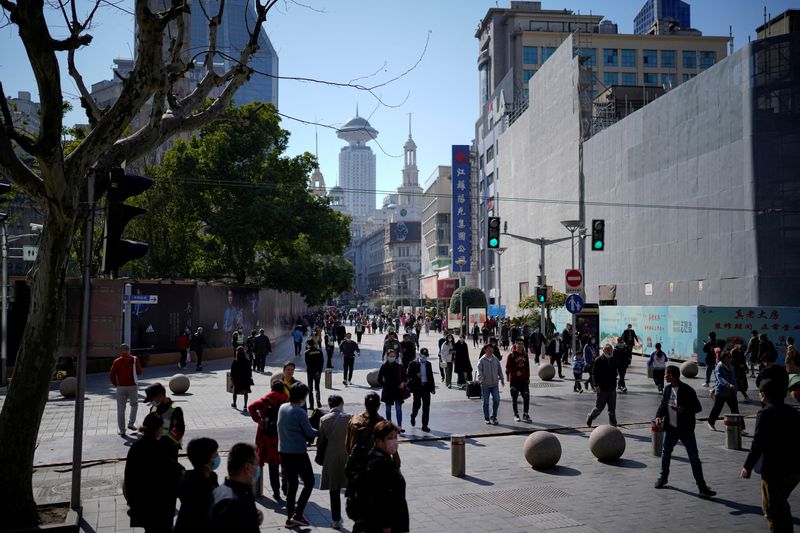Investing.com — China’s stimulus measures have been “a step in the right direction” for the world’s second-largest economy but remain “small”, analysts at UBS have said.
Chinese officials have rolled out moves over much of the past month to reinvigorate sputtering economic activity, stem a property market decline and boost infrastructure development. Most recently, the People’s Bank of China cut its one-year and five-year benchmark loan prime rate (LPR) by 25 basis points on Monday. The LPR, which is determined by the PBOC based on considerations from 18 designated commercial banks, is used as a benchmark for lending rates in the country.
At UBS, strategists have upgraded their forecast for China’s gross domestic product this year to 4.8% from 4.6% in reaction to the policy announcements — although the projection is still below Beijing’s stated 5% target level.
Crucially, nominal GDP, a measure of finished goods and services at their current market prices, is also expected to be “weak” at 4.1% year-on-year, the UBS analysts noted. They flagged ongoing issues high overcapacity in “many manufacturing areas” of the country as well, along with signs that China’s ailing real estate sector is “overbuilt and expensive.”
“The scale of excesses will take a long time to resolve,” the UBS analysts wrote in a note to clients.
But the analysts reiterated that they are “tactically overweight” on Chinese equities, arguing these stocks “[offer] value with the dividend yield on a par with the corporate bond yield.” Earnings revisions relative to global markets have also been improving and more support measures could still be coming from Beijing, they said.
The analysts were particularly overweight on , saying that it is the commodity that has the “least sensitivity” to ructions in the property market.
Meanwhile, they were underweight on luxury stocks. China remains one of the most important markets for firms selling high-end goods, leaving these businesses especially exposed to the sluggishness in the broader economy.
US consumers brands like Nike (NYSE:), Deckers, Apple (NASDAQ:), and Starbucks (NASDAQ:) are also “highly vulnerable” to China’s economic woes and the potential for increased US import tariffs following America’s presidential election in November, the analysts said.


